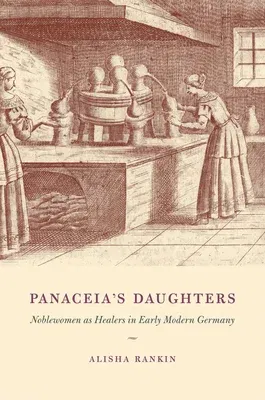Alisha Rankin
(Author)Panaceia's Daughters: Noblewomen as Healers in Early Modern GermanyHardcover, 19 March 2013

Qty
1
Turbo
Ships in 2 - 3 days
In Stock
Free Delivery
Cash on Delivery
15 Days
Free Returns
Secure Checkout

Part of Series
Synthesis
Print Length
312 pages
Language
English
Publisher
University of Chicago Press
Date Published
19 Mar 2013
ISBN-10
0226925382
ISBN-13
9780226925387
Description
Product Details
Author:
Book Format:
Hardcover
Country of Origin:
US
Date Published:
19 March 2013
Dimensions:
23.11 x
15.24 x
2.29 cm
ISBN-10:
0226925382
ISBN-13:
9780226925387
Language:
English
Pages:
312
Publisher:
Series:
Weight:
566.99 gm